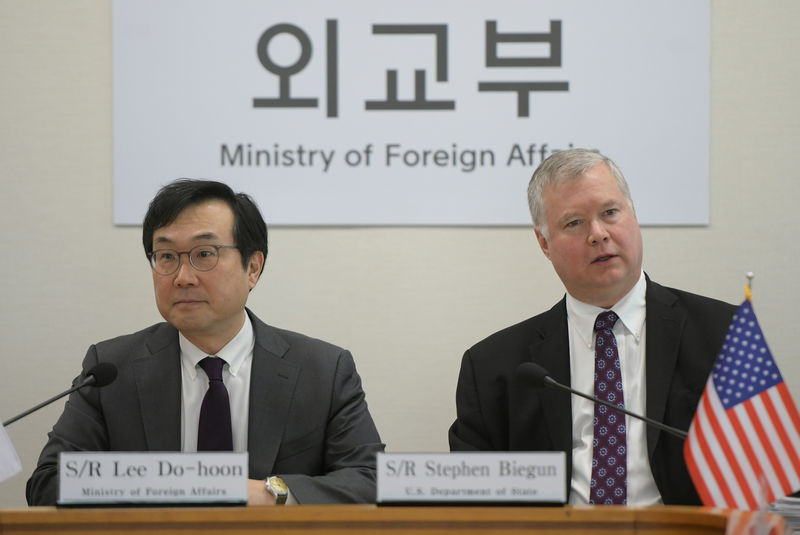WASHINGTON (Reuters) - Stephen Biegun, the diplomat who has been leading efforts to revive stalled U.S. denuclearization talks with North Korea, is under consideration to be President Donald Trump's next ambassador to Russia, a source familiar with the matter said on Monday.
The current ambassador to Moscow, Jon Huntsman, is due to step down in October after two years in the post, the State Department said last week, amid speculation he plans to run for Utah governor.
Vox news on Friday quoted two people familiar with internal White House discussions as saying that Biegun, the current U.S. special representative for North Korea, was Trump’s likely choice for Moscow.
A source familiar with the matter told Reuters that Biegun's name was under consideration.
Biegun did not immediately respond when asked about the Vox report. The State Department said it had no administrative announcements to make.
If Biegun, a Russia specialist, was to get the Moscow post, it would leave a significant hole in the U.S. effort to resume talks aim at persuading North Korea to give up its nuclear weapons, a policy priority for Trump.
Biegun led U.S. working-level negotiations with North Korea in the run-up to a failed second summit between Trump and North Korean leader Kim Jong Un in Hanoi in February.
Trump and Kim met again at the end of June and agreed to resume working-level talks, but this has yet to happen.
Trump said on Saturday Kim had told him he was ready to resume talks and would stop his recent missile testing as soon as U.S.-South Korea military exercises being held this month end.
The allies kicked off the largely computer-simulated exercises on Saturday for a 10-day run, as an alternative to previous large-scale annual drills that were halted to expedite nuclear talks between Pyongyang and Washington.
U.S. Secretary of State Mike Pompeo said on Wednesday he was hopeful working-level talks would resume in the coming weeks and said the U.S. side was planning for negotiations in a couple of weeks.
Biegun gave up a job at Ford as head of international government relations to take on his current role, which many consider a near impossible job. He previously had worked for decades as a congressional staffer and as a White House foreign policy aide under President George W. Bush.

Biegun, 56, studied political science and Russian language at the University of Michigan and was resident director for the International Republican Institute in Moscow from 1992-1994. He has also as served on the board of the non-profit U.S.-Russia Foundation for Economic Development and the Rule of Law.